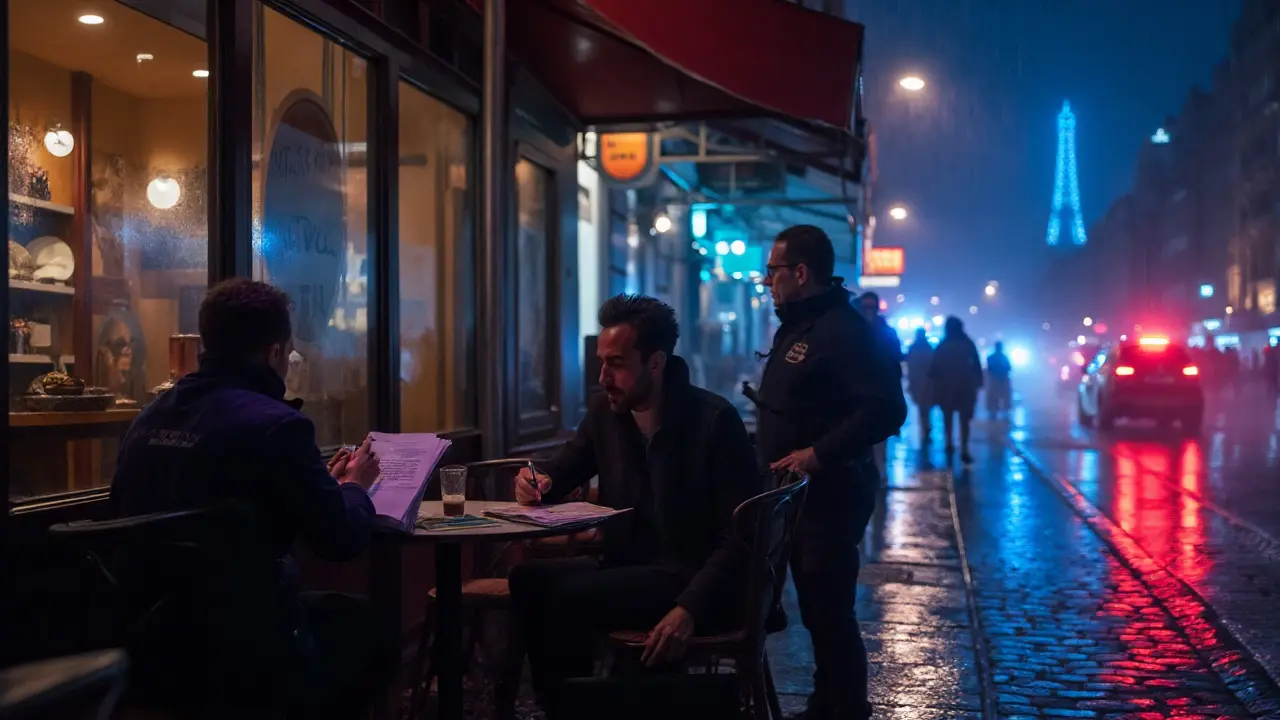Paris sells an image of freedom, but when it comes to escorting, the rules are tight, the politics are loud, and the ground keeps shifting. If you’re trying to work, book, or run a platform here in 2025, you’re navigating fines for clients, strict anti-pimping laws, platform liability, and a post-Olympics enforcement hangover. This is the real map: what the law says, how it’s enforced, what to do to stay safe and compliant, and what’s likely to change over the next 12-24 months.
- TL;DR: In France, selling sex isn’t illegal; buying it is (since 2016). Pimping/procurement is harshly punished. Paris enforcement is cyclical and event-driven.
- Clients face fines and classes; agencies risk felony-level charges if they cross into proxénétisme. Platforms are under EU DSA obligations and French law.
- Paper trails, tax compliance, and careful wording matter. Landlords and drivers can be exposed if they “knowingly facilitate.”
- Politics remain polarized: abolitionists vs. decriminalization advocates. Expect more digital moderation pressure and targeted policing, not full repeal.
- Do the basics: clear boundaries, screening, no illegal “facilitation,” declare income, document consent and rates, and avoid high-risk practices.
What the law actually says in Paris (2025)
Let’s strip this down to the parts that actually affect day-to-day life in Paris. In France, prostitution itself is legal for the person selling sex. The pivot is who gets punished and how services are arranged. Since 2016, the state shifted penalties from workers to buyers and tightened the net around anyone perceived as facilitating (procurement/pimping, or in French, proxénétisme).
Key pillars you need to know, as of September 2025:
- Clients are penalized. The 2016 law (Loi n° 2016‑444 du 13 avril 2016) criminalized the purchase of sex. First offense: a 5th-class fine typically set at €1,500, which can climb to €3,750 for repeat offense, plus an obligation to attend an “awareness course” about the realities of prostitution.
- Workers aren’t criminalized for selling. The same 2016 law repealed the offense of passive solicitation. But this didn’t remove the surrounding risks created by anti-procurement rules and municipal enforcement tools.
- Procurement (proxénétisme) is serious criminal liability. French Penal Code Articles 225‑5 to 225‑10 punish proxénétisme with up to seven years in prison and €150,000 in fines, jumping to ten years and €1.5 million in aggravated cases (e.g., minors, coercion, organized groups). “Facilitating” can be broad: taking a cut, arranging clients, or knowingly providing premises can tip you into offense territory.
- Platforms and ads sit in a risk zone. If a site or person profits by organizing the exchange, prosecutors can argue facilitation. On top of that, the EU Digital Services Act (Regulation (EU) 2022/2065) makes large platforms responsible for tackling illegal content under national law-including content that would constitute proxénétisme in France.
- Taxes still apply. The French tax authority doesn’t exempt sex work income. Individuals are expected to declare it (often as non-commercial income). But formal business registration is a minefield, because services that look like “prostitution” can’t be openly registered without inviting proxénétisme scrutiny for anyone assisting.
- Landlords, drivers, and managers beware. If you “knowingly facilitate” prostitution in premises you control, or through transport or management, you risk charges. This is why many leases forbid “commercial use” and landlords react fast to neighbor complaints.
The courts have backed this framework. In 2019, the Constitutional Council upheld the client-criminalization model (décision n° 2019‑770 QPC). Prosecutors also rely on proxénétisme to target agencies and organizers, and Paris police can issue administrative closures for venues used for illegal activity (via the Préfecture de Police).
So where does that leave people on the ground? Workers can operate, but they must avoid any arrangement that looks like someone else organizing, recruiting, profiting, or providing premises. Clients risk fines and reputational damage. Agencies and platforms carry the heaviest criminal exposure if they cross into facilitation.
| Actor | Primary Legal Risk (2025) | Typical Penalty/Exposure | Key Legal Basis |
|---|---|---|---|
| Client | Buying sexual services | €1,500 first offense; €3,750 repeat; mandatory awareness course | Loi n° 2016‑444 (client offense) |
| Independent worker | None for selling; high risk around “facilitation” by others | Tax compliance expected; potential collateral checks/ID controls | Penal Code arts. 225‑5 to 225‑10 (proxénétisme applies to third parties) |
| Agency/manager | Proxénétisme (facilitating, profiting) | Up to 7-10 years prison; €150k-€1.5m fines; asset seizure | Penal Code arts. 225‑5 to 225‑10 |
| Landlord/venue | Knowingly providing premises | Criminal exposure; administrative closure orders | Penal Code 225‑6; Police Prefecture powers |
| Platform/directory | Facilitating transactions; illegal ads | Criminal risk under proxénétisme; DSA moderation duties; fines | Penal Code; DSA (EU 2022/2065) |
One more nuance that Paris veterans know well: public order rules. The city targets street markets like Bois de Boulogne and Porte Dauphine with patrols, identity checks, and nuisance fines. Even if you’re not breaking a criminal statute, public-order enforcement can still disrupt or push activity out of sight.
How politics shapes enforcement on the ground
Paris swings with politics and headlines. Even with the same laws, enforcement intensity moves in cycles. You see it around major events, neighborhood campaigns, and national debates on trafficking and digital safety.
- Event-driven crackdowns. Before and during the 2024 Olympics, the Préfecture de Police ramped up controls around stations, tourist corridors, and high-end districts. That posture didn’t fully vanish after the Games. Expect periodic “coups de poing” (blitz operations) when an area gets media attention.
- Local politics matter. The city hall and arrondissements push for “tranquillité publique.” When neighbors complain, landlords and co-op syndics feel pressure. This translates into evictions, closure notices, and stricter building access rules. Politics is the wind; nuisance policy is the sail.
- National polarization. France’s abolitionist bloc (aiming to end prostitution) faces a vocal decriminalization camp, including STRASS (sex worker union) and health NGOs. The 2016 model is still the law in 2025. Parliament occasionally floats tweaks-stronger anti-trafficking, platform obligations-but not full-scale decriminalization.
- Digital moderation is the new border. The DSA made platforms legally cautious. French regulators (ARCOM) and prosecutors lean on them to remove unlawful ads. Result: directories and social platforms tighten verification, restrict language, downrank escort content, or block payment links. Visibility becomes the frontline battle.
- Courts and prosecutors set tone. Paris prosecutors pursue proxénétisme cases that look organized-multiple workers under one manager, rented flats, drivers taking a cut, scripted ads with centralized phones. Even when cases don’t stick, the seizures and legal fees bite.
I spend time with operators, lawyers, and workers in the city, and there’s a clear pattern: when politics heat up, enforcement moves from “hands-off unless there’s a complaint” to “visible presence and testing the edges.” Street-level controls ripple into apartments and online spaces. Everyone adjusts-quietly changing language, rotating locations, or pausing ads during “hot weeks.”
Data is imperfect-this is a semi-underground economy-but you can feel the indicators: more ID checks around Bois de Boulogne and La Chapelle when TV crews film; agency cases spiking after media exposes; and platforms selectively geofencing content. That’s politics doing what politics does: shaping the risk map without rewriting the statute book.

Practical playbook: operating legally and safely
Talk is cheap unless it keeps you out of trouble. Here’s the practical side for people who live this reality-workers, clients, landlords, drivers, and digital operators. None of this is legal advice; it’s a field-tested checklist so you can have an informed conversation with your lawyer and accountant.
If you’re an independent worker
- Keep control of your own bookings and money. The cleanest way to avoid proxénétisme tangles is not to let others “organize” you. If someone else negotiates, advertises, or takes a cut, a prosecutor can argue facilitation.
- Wording matters in ads. Avoid language that implies third-party management, team availability, or “dispatch.” Keep everything first-person and personal. No “agency” vibes.
- Document your rates and consent. Private, time-based companionship framing is safer than transactional phrasing tied to acts. Keep clear boundaries. Don’t list illegal services. A simple note with time, rate, and consent protects both sides.
- Screen lightly, store securely. Basic screening (name, phone, a work handle) helps safety. Store only what you need, encrypt devices, and delete old data on a schedule. Never share client data with third parties.
- Tax: declare income; keep receipts. Track earnings and deduct legitimate expenses (transport, phone, website hosting) per your accountant’s guidance. Many declare as non-commercial or miscellaneous income. The goal is a clean paper trail if you’re ever audited.
- Housing risk management. Avoid short-term rentals that ban “commercial use.” Don’t let neighbors see high-traffic patterns. If a landlord asks, keep it general: “consulting/companionship.” Never give building access codes widely. Rotate locations if necessary.
- Health and safety first. Use check-in systems with a trusted person, share booking details, and have a code word. Keep basic self-defense tools where legal, and know local emergency numbers.
If you’re a client
- Know you can be fined. The law targets you. If stopped, cooperate; arguing on the sidewalk won’t help. Fines and mandatory awareness courses are the baseline.
- Don’t pressure for illegal terms. No unprotected activities, no filming without consent, no bargaining that pushes someone to accept risky terms. That’s how situations escalate to police involvement.
- Discretion is part of safety. Respect time and boundaries. No lingering in common areas, no loud entrances, no sharing private details.
- Payments: be sensible. Cash is common; digital leaves a trail. Never ask for illegal workarounds. If you do pay digitally, use neutral memos.
If you’re a landlord or driver
- Avoid “knowing facilitation.” If you take a percentage of earnings, advertise, or schedule clients, you’re in danger territory. Keep relationships standard and documented at market rates (normal rent, normal ride fees).
- Written agreements. A straightforward lease or service contract helps. No “management” clauses. If complaints arise, address noise and traffic, not the nature of the work.
If you run a directory or platform
- Legal triage. Get a French counsel to review your ad policies. Build a risk register: what languages, features, and payment flows could be read as facilitation?
- Compliance matrix. Implement clear T&Cs, forbid under-18 content, require identity checks (age/consent), offer reporting tools, and react fast to notices. This aligns with DSA duties and reduces proxénétisme arguments.
- Monetization hygiene. Flat listing fees are lower risk than revenue shares per booking. Avoid built-in messaging that looks like brokering; if you keep it, add consent prompts and rate disclaimers.
- Data minimization. Store only necessary data, set retention limits, and appoint a data protection officer if you’re big enough. If seized, less data means less collateral damage.
- Moderation playbook. Ban explicit illegal offers, block phrases that imply third-party control, and require first-person profiles. Log actions to show good-faith moderation.
Red flags that raise proxénétisme suspicion in Paris
- “Dispatch” phone routing multiple workers with standardized scripts.
- Centralized scheduling and transport with percentage cuts.
- Short-term rental blocks with rotating tenants under one coordinator.
- Ads that speak in the third person (“Our models,” “We arrange”).
- Any involvement with minors, coercion, or fraud-expect severe penalties.
Simple decision tree (operators)
- Are you setting terms or taking a cut from multiple workers? → If yes, seek immediate legal counsel; redesign your model.
- Does your platform enable instant booking and payment? → Add disclaimers, remove per-booking commissions, and separate listing from transaction.
- Do you store sensitive client/worker data? → Minimize, encrypt, set retention windows, and prepare for legal requests.
- Do your ads imply management? → Switch to first-person, no “agency,” no “we,” no rotations.
What’s next: scenarios for the next 12-24 months
What’s baked into the next two years? Nothing radical unless national politics flip. But several trends look very likely in Paris.
- Steadier digital pressure. Platforms will keep tightening moderation under DSA scrutiny, and French authorities will push for faster takedowns. Directory sites that used to skate by will need stronger KYC and clearer policies.
- Micro-crackdowns, not blanket bans. Expect short, intense enforcement waves in “hot zones,” especially after media stories or elections. Agencies remain primary targets; independent workers get indirect pressure through housing and nuisance rules.
- Tax and paperwork cleanups. Post‑COVID and Olympics, the treasury keeps hunting for under-reported income. Clean bookkeeping is the cheapest insurance you can buy.
- Public health framing returns. Health NGOs will keep advocating for harm reduction. The city will support outreach, testing, and safer-work programs-while still backing abolitionist legal structures. It’s a paradox, but it’s France.
- Legal tweaks over leaps. The 2016 model stands. Parliament might sharpen trafficking tools and adjust penalties, but there’s no clear majority for decriminalization. Court battles will turn on platform liability and what counts as “facilitation.”
Here’s a compact snapshot you can pin to the wall.
| Item | 2025 Status in Paris | Practical Takeaway |
|---|---|---|
| Selling sex | Not criminalized | Operate independently; avoid third-party “management.” |
| Buying sex | Offense since 2016 | Clients face fines and courses; keep low profile; respect boundaries. |
| Proxénétisme | Severe penalties | No cuts, no dispatching, no centralized control. |
| Platforms | DSA duties + French law | Strong moderation, KYC, careful monetization design. |
| Housing/transport | Risk if “knowingly facilitating” | Keep relationships standard; no performance-based fees. |
| Taxes | Income must be declared | Simple ledger, receipts, neutral descriptions. |
Mini‑FAQ
- Is escorting legal in Paris? Selling your own time/companionship isn’t a criminal offense. Buying is. Third parties who organize or profit can be prosecuted for proxénétisme.
- Can I run a small “collective” of independents? If you coordinate bookings, ads, or take a fee, you risk being seen as facilitating. True collectives avoid central control and revenue sharing. Get legal advice before you try.
- What about camming or online content? Different domain. Porn platforms face age‑verification and ARCOM actions; escorting triggers proxénétisme risks. Keep the lines separate.
- Do police target apartments? Yes, when there are complaints or patterns-high foot traffic, neighbors calling, or tips from digital monitoring. Administrative closures can follow.
- How do people manage ads now? First‑person language, no explicit services, oblique phrasing, and sometimes private networks. Platforms increasingly require ID and fast response to reports.
Next steps / Troubleshooting
- If you’re starting out as an independent: Draft a one‑page playbook: rates by time, booking rules, simple screening, safety check‑ins, and refund policy. Pick low‑risk locations. Set up a clean, separate phone and email.
- If you’ve been warned by a landlord or neighbors: Reduce traffic, adjust hours, improve discretion (staggered arrivals), and consider relocating. Keep communications polite and focused on noise/traffic, not the nature of your work.
- If you run a site and got a legal notice: Freeze the listed profile, document actions, consult counsel, and refine filters. Shift from per‑booking fees to flat listings. Publish clear rules and an abuse-report button.
- If you’re a client concerned about controls: Don’t push risky terms, keep interactions brief and respectful, and be aware of patrol areas and event weeks. If questioned, cooperate; never argue on the street.
- If you’ve been contacted by police: Ask for legal representation before detailed answers. Provide ID and basics; don’t speculate. Keep copies of leases, invoices, and communications.
Paris isn’t a no‑go zone, but it’s not a free‑for‑all. The safest strategy is boring: operate independently, leave no room for a “third‑party facilitation” story, keep your paperwork tidy, and avoid spectacle. If you work or advertise here, design your setup so that even a skeptical prosecutor sees separation, consent, and compliance. It won’t make you invisible, but it will make you resilient. And in this city, resilience is the real luxury.
Final note on language: I’ve used practical phrasing here because that’s how people actually work and get caught. If you want the citations: Loi n° 2016‑444 (client offense), Penal Code arts. 225‑5 to 225‑10 (proxénétisme), Conseil constitutionnel n° 2019‑770 QPC (constitutionality), DSA (EU 2022/2065). Those are the anchors. Everything else is local weather.
For anyone eyeing the escort industry Paris debate from the outside, the sign is simple: the law is abolitionist in spirit and procedural in practice. Survive by reducing your footprint, not by pretending the wind isn’t blowing.

